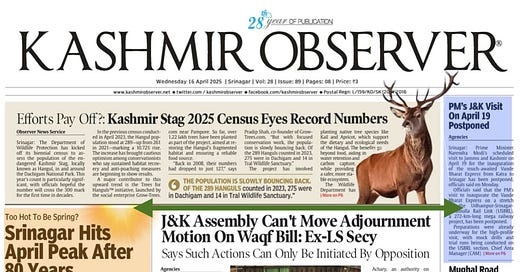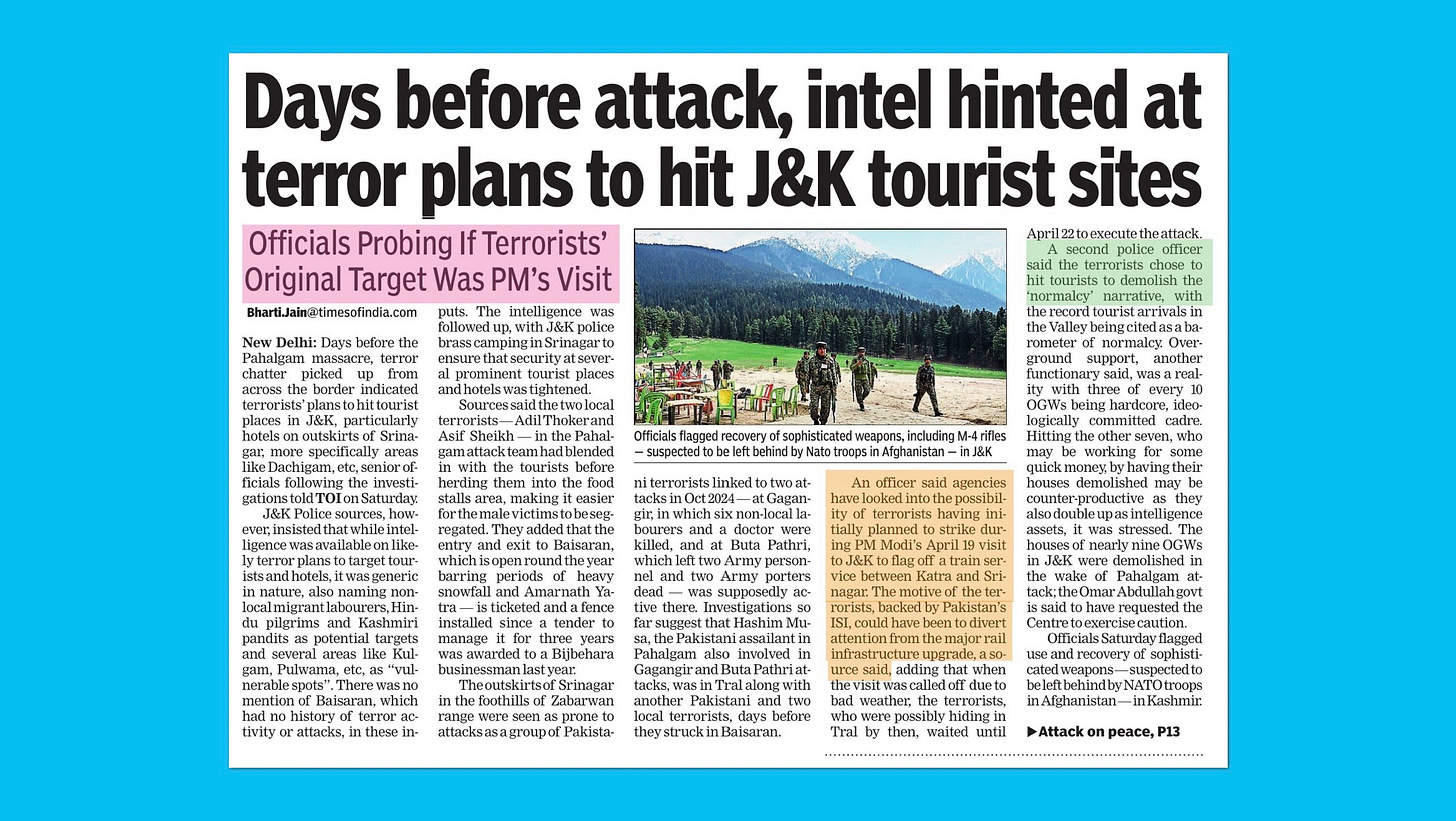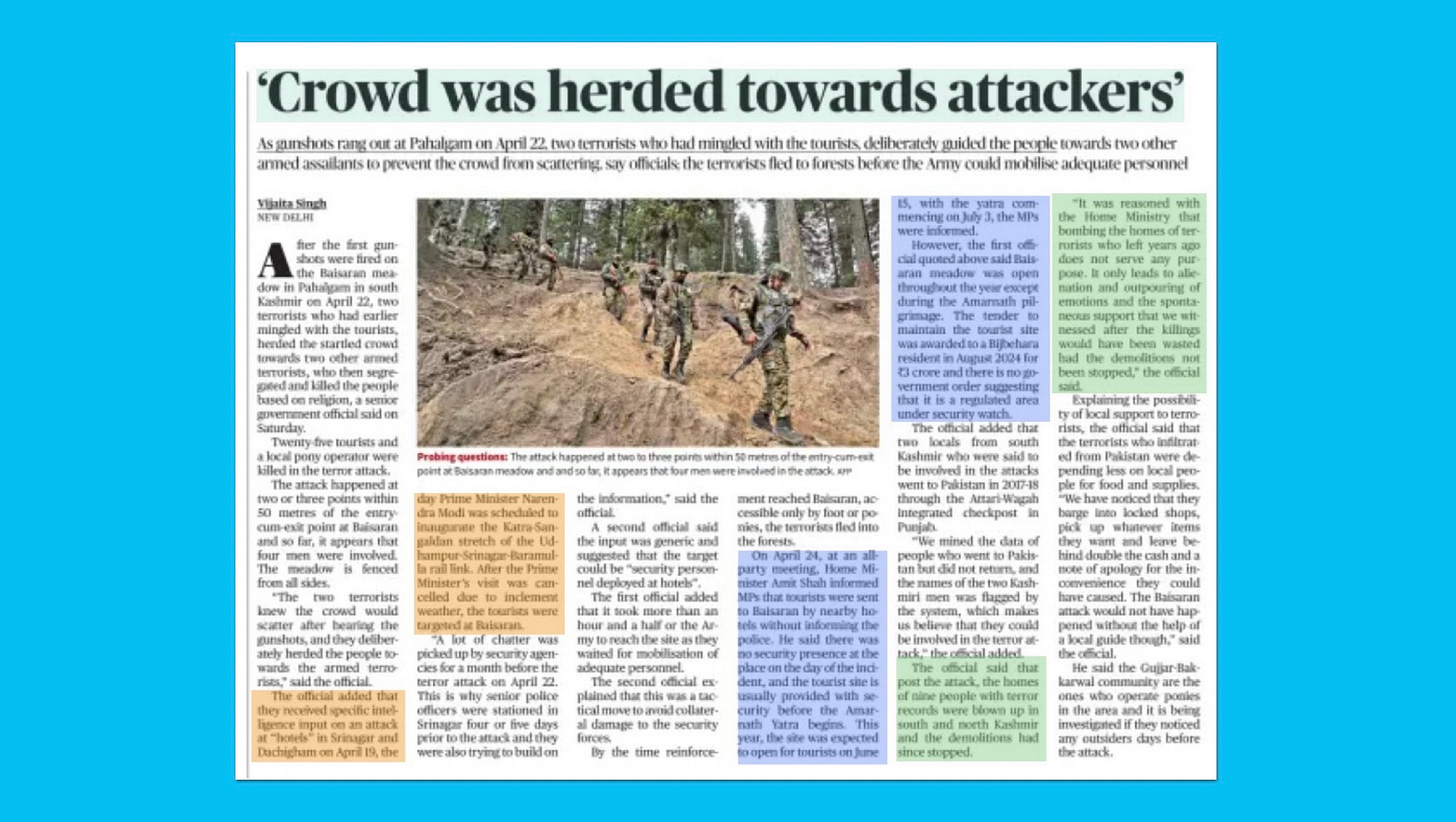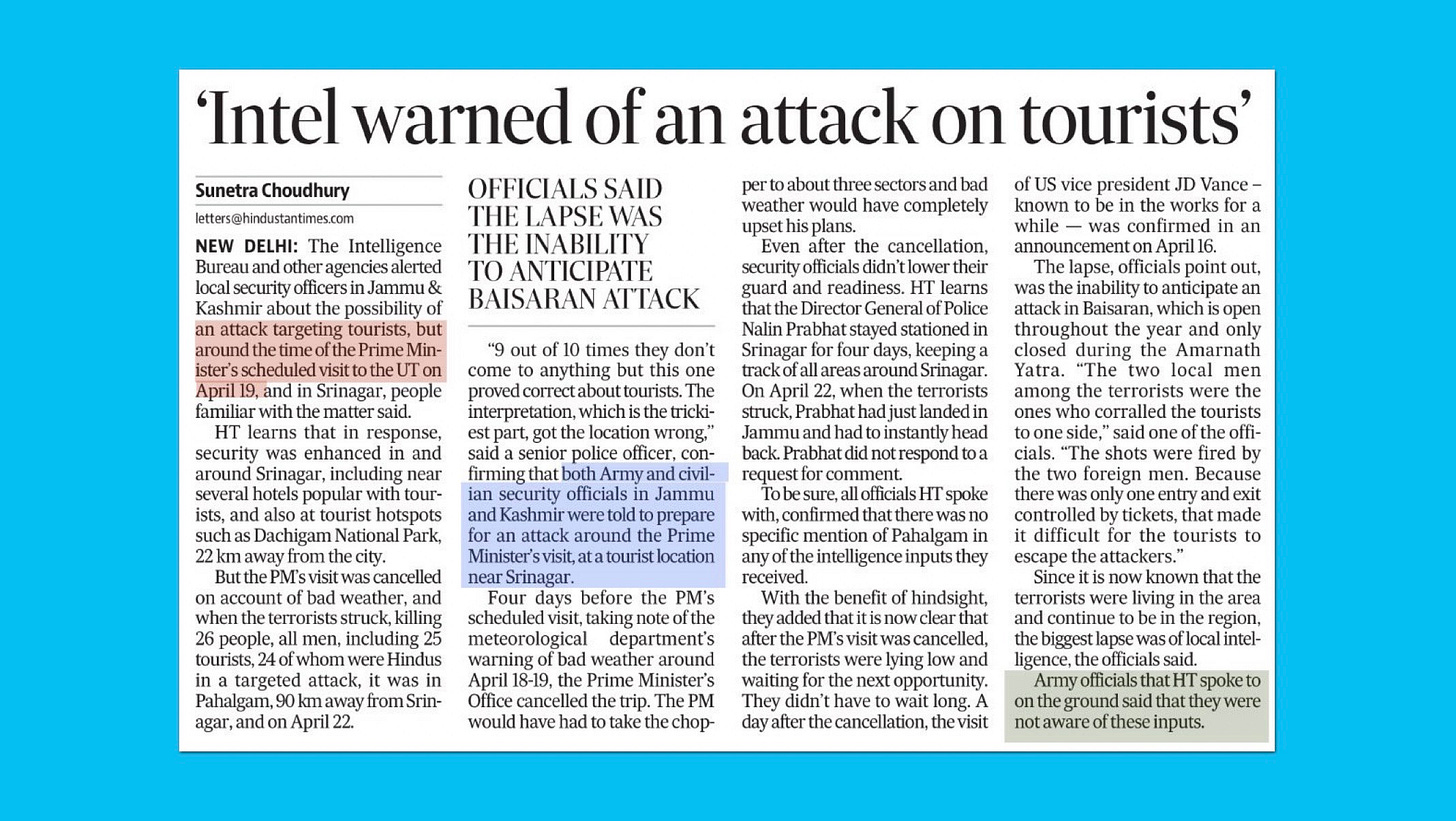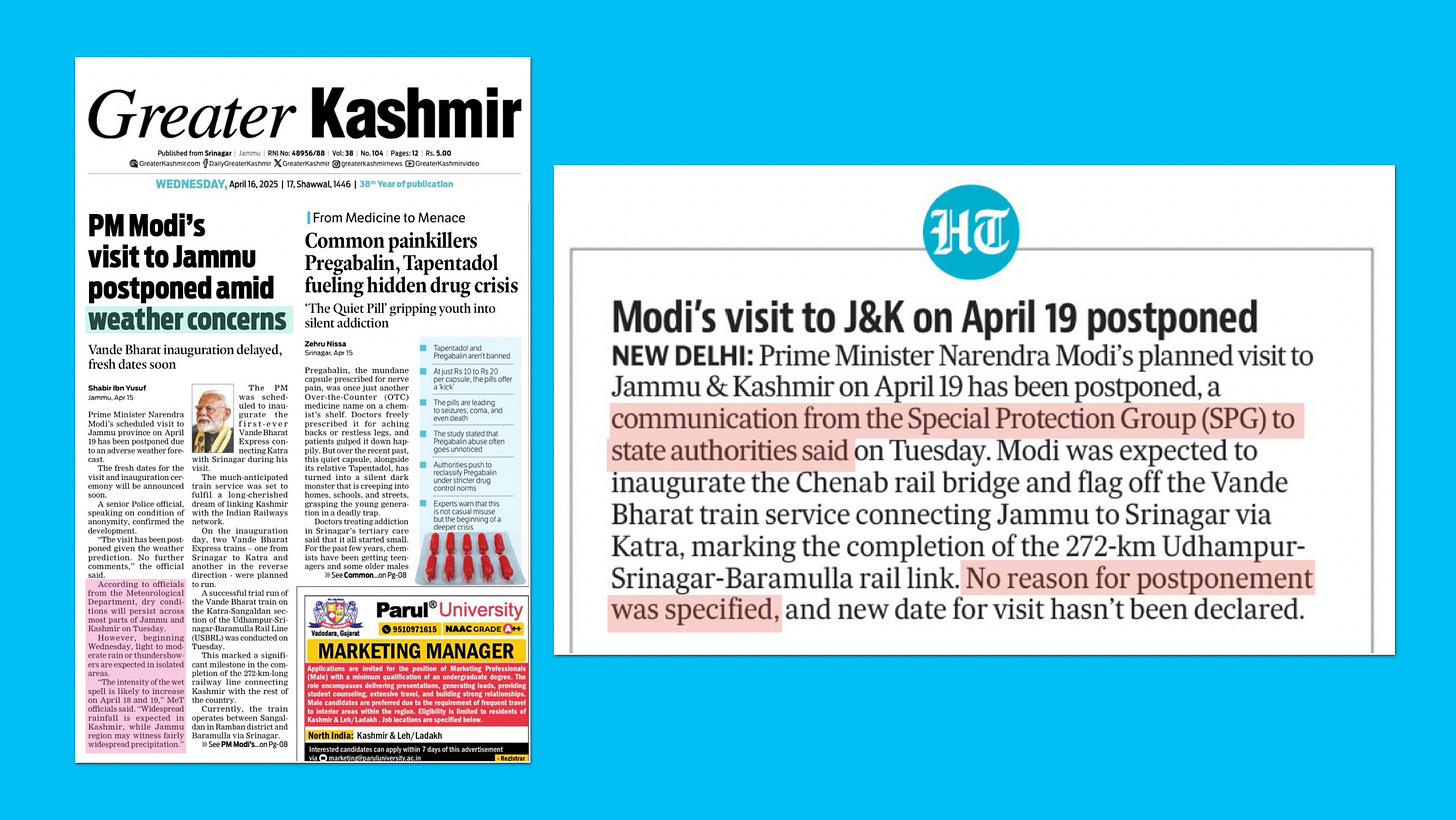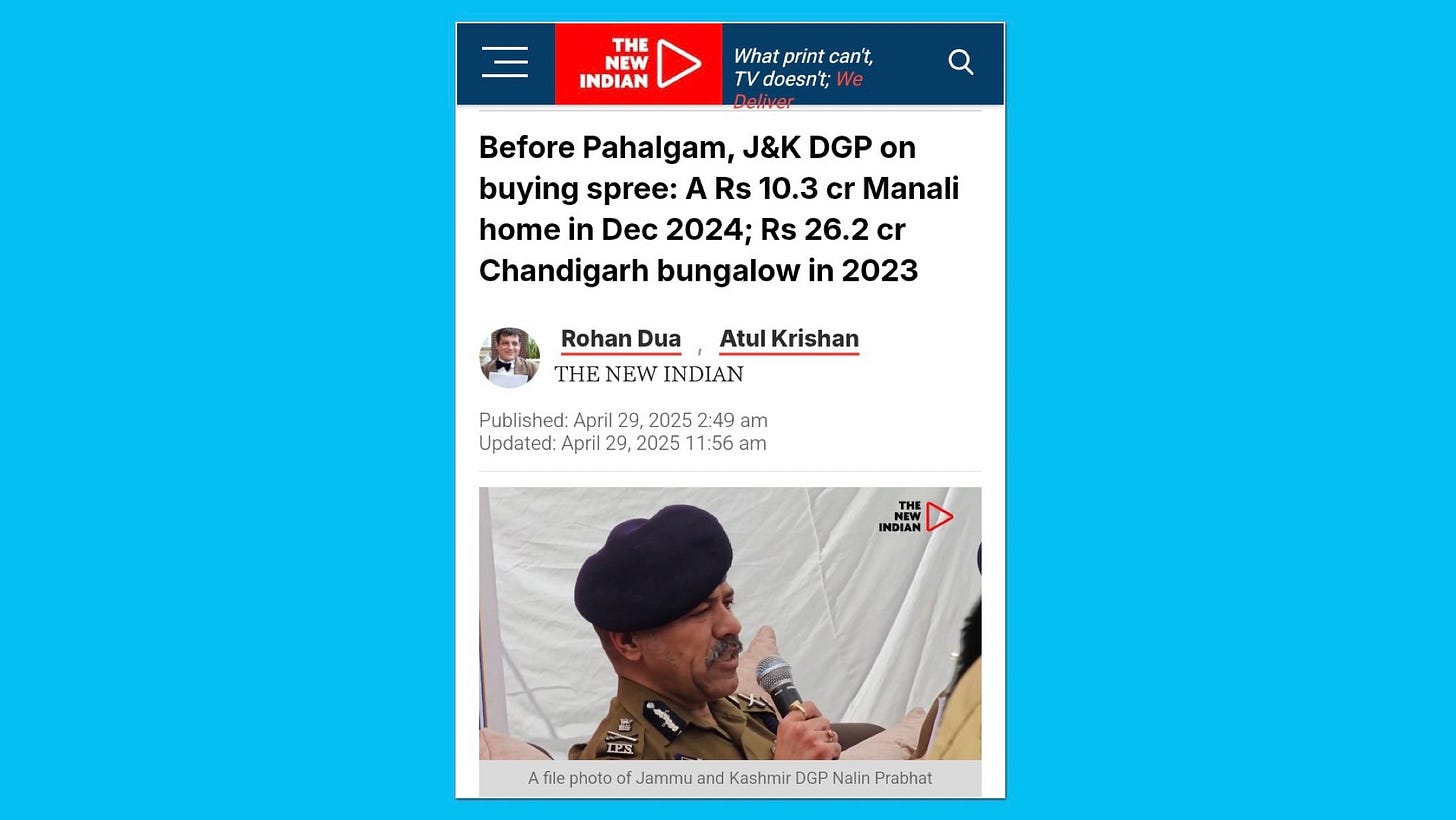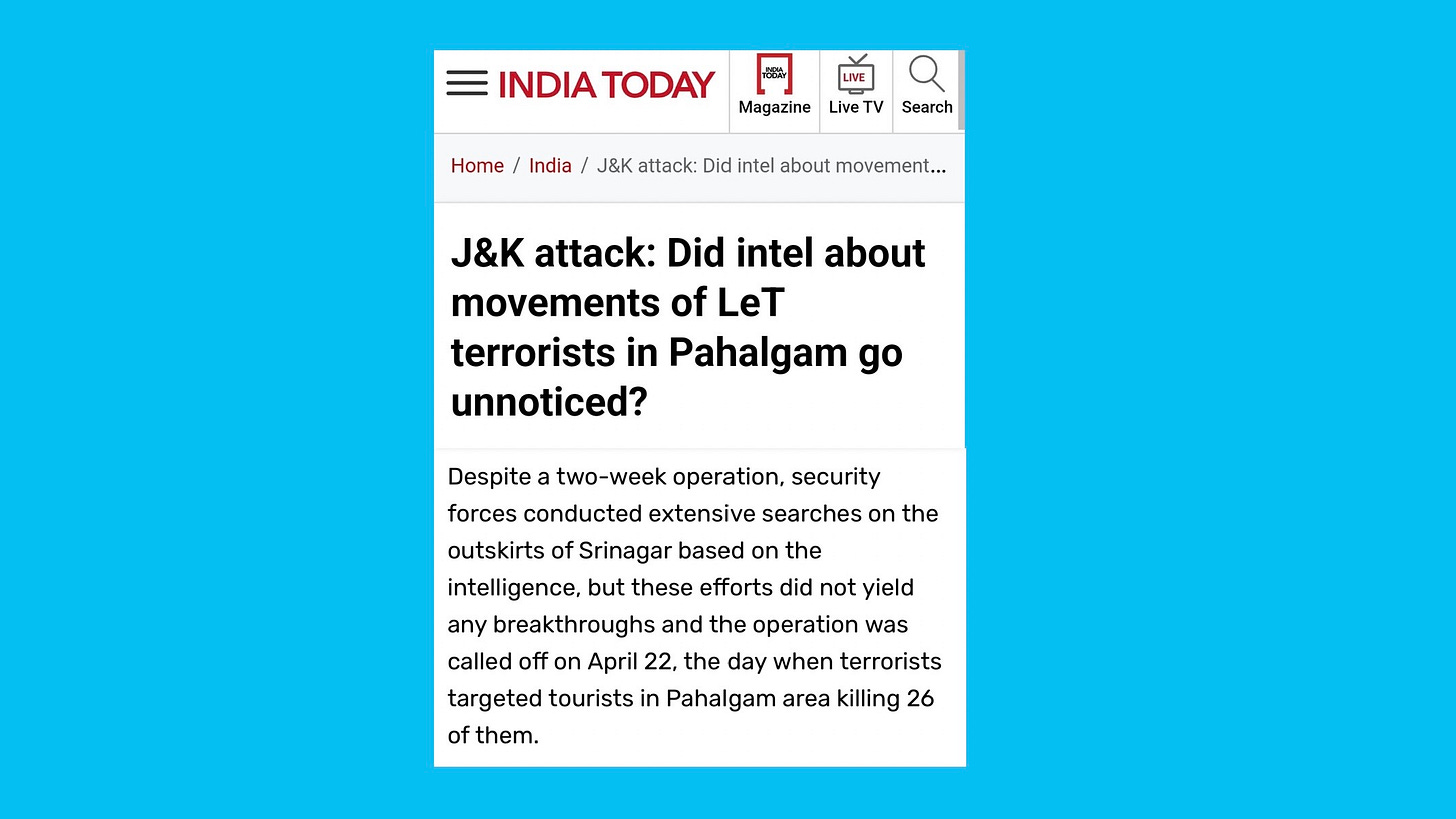Pahalgam: A security briefing, four news reports, and the equation between Ajit Doval and Amit Shah
Reading between the lines (and jumping to conclusions) from a distance of 2,500 kilometres
**
Unfailingly wise after every horror, India’s "Security Establishment" has sprung to life and begun the patriotic duty of covering the unaccountable asses of its smug paymasters, a fortnight after terrorists killed tourists---and, with it, the fiction on loop of "normalcy" and "end of aatankwad"---in Kashmir.
Four English newspapers on May 4---the 'terhvi' (13th day) after April 22---had the same dazzling piece of wisdom being funnelled by nameless, faceless "senior officers" hiding behind taxpayer-funded bunkers:
"We knew all along, as we always do, that something like this was coming, here or there, sooner if not later."
Intelligence so vague as to be worthless.
Said newspapers, which parallelly haven't still found the vestiges of their vertebrae to ask what precisely is Amit Shah's core strength as home minister---if he could not prevent Manipur; if he could not prevent Delhi; if he could not prevent Pahalgam---faithfully telegraphed the dictation to Editors long used to receiving such anonymous piffle with a smirk.
Thankfully, only one of them found it worthy of page one.
**
Looking at the phraseology of the bylined news reports, it is clear the source of the claims was not the home ministry, whose mandate is internal security. The acronym MHA (Ministry of Home Affairs) is not in any of the reports.
At least not in a positive vein.
That, by itself, is revealing, because it suggests that behind the facade of a government that believes in 'ek desh, ek sandesh', there are factotums competing to take credit---or, happy to shift the blame---in a tragedy of this magnitude.
After all, in l'affaire Pahalgam, it is not just Amit Shah's towering incompetence that is on display but of Narendra Modi's very first appointee after he was sworn in as prime minister in 2014: National Security Advisor (NSA) Ajit Doval.
Indeed, reading between the lines, it appears as if Amit Shah and the home ministry were the thinly disguised targets of this background briefing.
Shah's claim at an all-party meeting on April 24 that the meadow where the tourists were massacred was opened without the knowledge of J&K police, is blithely dismissed by an unidentified "stakeholder" at the briefing who says the meadow was open all through the year without any government regulation.
It is also suggested, in just as many words, that the demolition of houses of nine people with terror records after the Phalagam attack was an initiative of Shah's home ministry, and this was stopped only after it was "reasoned with MHA" that it would not serve any purpose and that it would only lead to alienation of Kashmiris.
Reasoned by us, who are not in North Block and who report to a different master, is the unstated message.
**
Shorn of the padding---that two local terrorists mingled with the tourists and herded them to a food complex where two foreign terrorists fired at them at close range---the objective of the briefing was to suggest that this attack did not catch mighty India by surprise.
Id est, there was a "specific intelligence input" on a possible attack on hotels in and around Srinagar on April 19, the day prime minister Narendra Modi was to visit the Valley to flag off a rail link.
**
The PM's visit was called off on April 14. Kashmiri newspapers reported on April 16 that this was due to "adverse weather conditions" predicted by the met department, although the Special Protection Group (SPG), which guards the PM, did not assign any specific reason for the postponement (above).
Kashmiri journalists confirm that it did rain in Ramban on April 19, but again the subliminal signal: we knew, and our information was useful in making the PMO call off his trip, although it cited weather for public consumption.
(Only one of the correspondents says the said input came from the "Intelligence Bureau", which reports to Shah's home ministry, along with other agencies.)
**
All four newspapers go out of their way to give a long rope to Jammu & Kashmir DGP Nalin Parbhat, a police officer of pahadi origin like Ajit Doval, who was the subject of a tendentious report after the Pahalgam incident (above).
He (and the police brass), we are now reassured, stayed stationed for four or five days in Srinagar after receiving the intelligence input of an impending April 19 attack; and that he was trying to build on the information and was in the capital till as late as April 22.
One of the reports helpfully claims the security forces conducted search operations on the outskirts of Srinagar till April 22, the very day the terrorists struck in Pahalgam.
**
It is unclear if the journalists had a good fortune to hear the "chatter" that was allegedly picked up for weeks---a month, apparently---before April 22. But all of them have the standard disclaimer that the inputs were "generic" in nature, that there was nothing specific to prevent the attack in Pahalgam, which is 90 km from Srinagar.
One of them even says, "Army officials on the ground said that they were not aware of these inputs".
The charade has gone on too long to suggest a "turf war" between Shah and Doval, although it has the heavy imprint of it. But looking at pictures of who is in room when the prime minister meets the chiefs of the armed forces, and whom he meets separately after, it is clear that James Bond can run circles around Chanakya when pushed to the wall.

